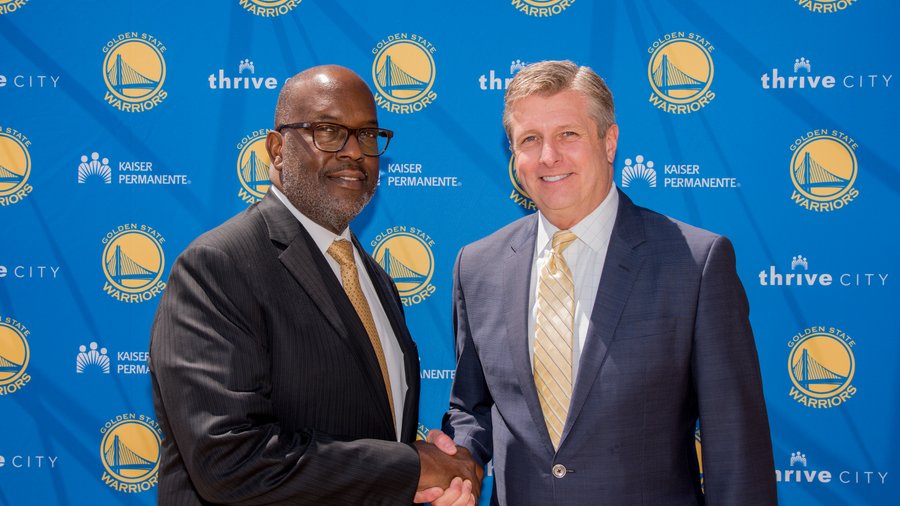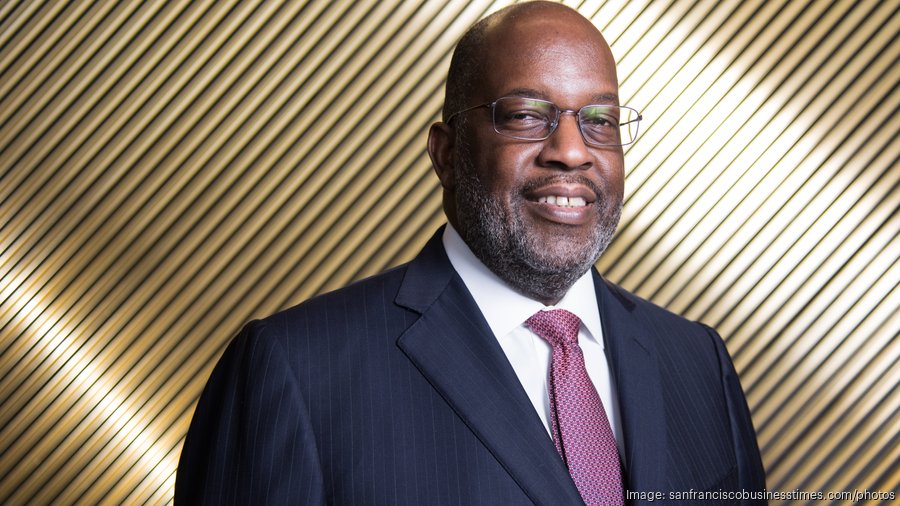Bernard Tyson, the charismatic chairman and CEO of Kaiser Permanente and one of the most influential business figures in the Bay Area, died early Sunday morning. He was 60.
The company issued a statement Sunday saying Tyson died unexpectedly in his sleep. No cause of death was immediately available.
The Kaiser board named Gregory A. Adams, executive vice president and group president, as interim chairman and CEO.
Tyson has led Oakland-based Kaiser Permanente, a not-for-profit managed care organization with 13 million members and $82.8 billion in revenue, since 2013. He was named chairman in 2014 and has become a prominent voice in the national health care landscape. As one of a small number of African-Americans leading organizations the size of Kaiser, he also spoke often about diversity issues in corporate America.
On Saturday night, the day before his death, Tyson spoke at an AfroTech event, and the organization published an interview with him Nov. 7.
Tyson chaired the Bay Area Council, one of the region's most influential business groups, for two years until July. During his tenure there, he helped commission the first regionwide study on homelessness in the region.
"He really drove us toward addressing the homelessness issue in the Bay Area,” said Jim Wunderman, CEO of the council.
Tyson was scheduled to play a role at the organization's annual dinner and Business Hall of Fame Awards Thursday, and Wunderman said the council will instead honor his legacy at the event.
“He was a one-of-a-kind person,” he said. “When I think about someone who I want to emulate and think about who made a positive impact on me, he's really at the top.”
Mary Huss, publisher of the Business Times who succeeded Tyson as chair of the council, said he strived to bring the community together.
“I feel like he was the father, the leader of our community in so many ways,” she said.
Tyson also was a leading voice in the national conversation about race in law enforcement, as high-profile incidents of white officers in recent years shooting black men gripped the nation. After Michael Brown was killed in Ferguson, Missouri, in 2014, he penned a personal essay on LinkedIn on his experiences living as a black man in America. Outside of his role at Kaiser, Tyson also served as a board member of Salesforce and the American Heart Association.
Gov. Gavin Newsom released the following statement Sunday:
“Jennifer and I are deeply saddened to learn of the passing of health care pioneer and our dear friend Bernard Tyson. Bernard’s vision and influence made an impact at home and abroad, and he led with excellence on behalf of millions of Kaiser patients and thousands of employees. We will always remember how he made health care accessible for so many while paving the way for countless professionals of color to pursue leadership roles in health care and corporate America.
"Our thoughts are with Denise, the Tyson family, and all at Kaiser Permanente who were inspired by Bernard’s leadership and example."
Tyson, a Vallejo native, earned both his undergraduate and graduate degrees from Golden Gate University in San Francisco, the first in health service management and the graduate degree in health service administration. After a two-year stint at Vallejo General Hospital, Tyson joined Kaiser as an assistant administrator in 1987 and has been there ever since, earning more $16 million to make him the highest paid health CEO in the region.
“Bernard was an exceptional colleague, a passionate leader, and an honorable man. We will greatly miss him,” said Edward Pei, who chairs the Kaiser board's executive committee and the governance, accountability and nominating committee, in the statement Sunday.
Tyson had a major health scare in 2006 when he suffered a heart attack and heart failure and had open heart surgery, and he spoke often about how the experience shaped his views as an executive.
“Nowhere on my calendar would you have found an entry that evening saying I would almost die,” Tyson told Medscape in an interview in 2016. “The first takeaway is how traumatic something like that can be. It becomes very personal when it is your health, when something goes dramatically wrong.”
Earlier this year, Tyson and Kaiser cut a deal for new national and regional headquarters in Oakland and announced a partnership with the Golden State Warriors at the new Chase Center.

In September, the health care organization reached a new contract agreement to avoid a strike that would have idled 85,000 workers, including 67,000 in California.
Yet Kaiser was still facing labor strife, with 4,000 behavioral health workers scheduled to stage a five-day strike beginning Monday. The National Union of Healthcare Workers announced Sunday afternoon they will postpone the strike in deference to Tyson's death.
"While we had our differences, I had tremendous respect for him and his willingness to collaborate with workers to make Kaiser the model provider of medical services in California,” said NUHW President Sal Rosselli.
The Business Times named Tyson a Most Admired CEO in 2015 and its executive of the year in 2016. He was named to the Time 100 list of influential people in 2017.
He is survived by his wife, Denise, and three sons.
This story is developing.
